UPCEA and Columbia University School of Professional Studies Convene Business and Academic Leaders for the Forum on the Future of Work
Inaugural Forum on the Future of Work: Day 1
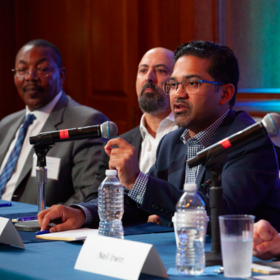 On June 21 and 22, UPCEA and the Columbia University School of Professional Studies (SPS) hosted the Inaugural Forum on the Future of Work.
On June 21 and 22, UPCEA and the Columbia University School of Professional Studies (SPS) hosted the Inaugural Forum on the Future of Work.
The Forum brought together academics and industry leaders to discuss the changing leadership landscape, new ways to nurture employee talent, and the role of education in the coming labor market.
The first day of the Forum included a welcome from SPS Dean Jason Wingard and UPCEA CEO Bob Hansen, and a keynote from Jonathan Law, Partner at McKinsey & Company. A panel on “The Leadership Landscape in the Future of Work” followed, which featured Law, Parchment’s Dr. Matt Pittinsky, National Geographic’s Michael Ulica, TIAA’s Carrington Carter, and was moderated by Wall Street Journal’s Lauren Weber.
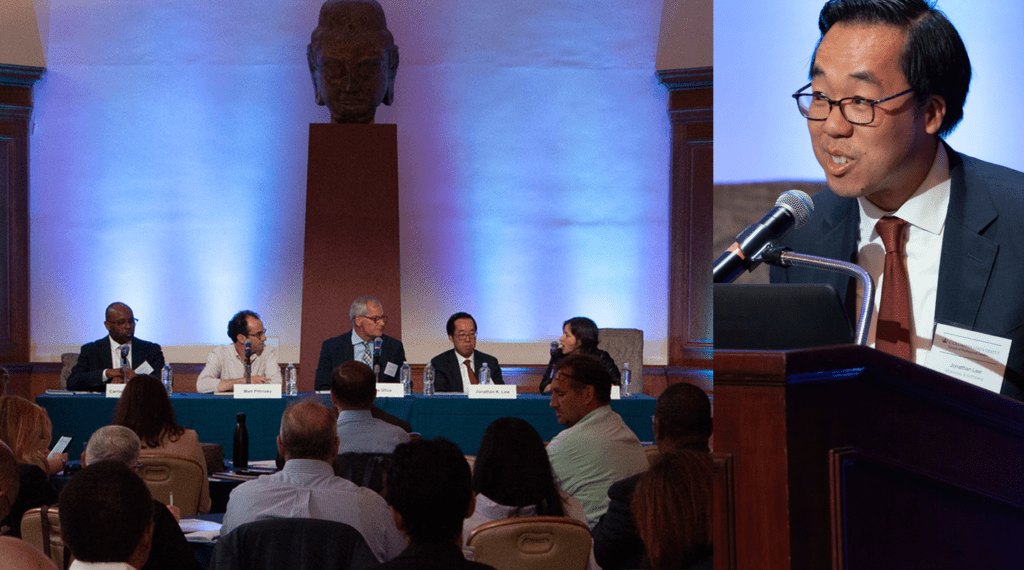
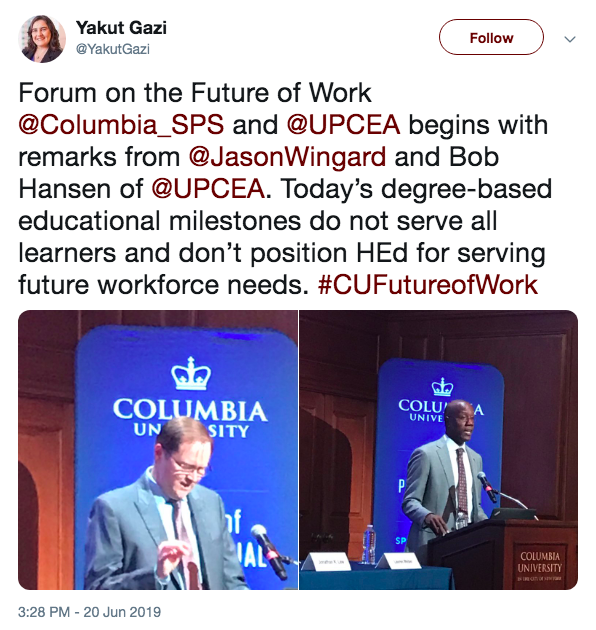
Law’s keynote examined how the advance of artificial intelligence will alter the world of work, and gave an overview of how labor will shift across demographics, region, and industry. Up to 26 million people may need to change occupational groups by 2030.
The panel discussed how higher education can meet the needs of the new labor market that Law introduced. The group stressed the importance of diversifying workforces, expanding curricula offerings, cultivating cognitive and noncognitive skills in the classroom, and supporting faculty on innovative and pedagogical methods.
The panel underscored that a focus on lifelong learning with a growth mindset is essential for success.
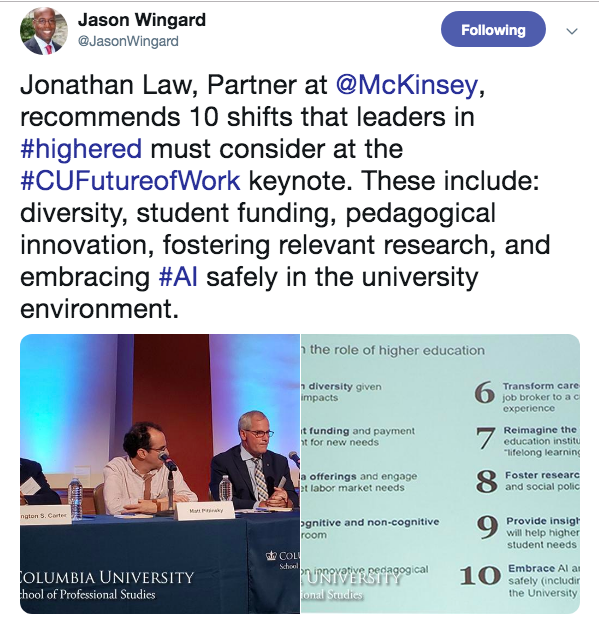 |
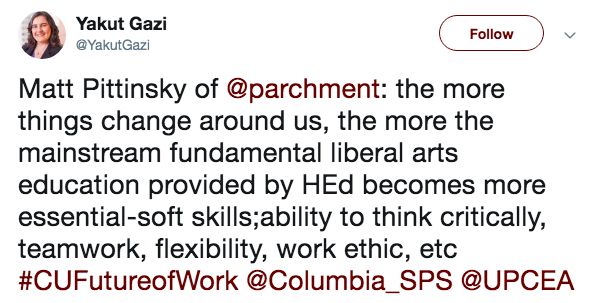 |
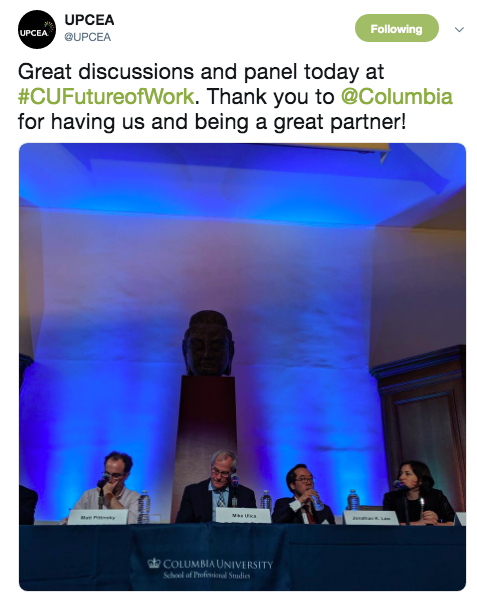 |
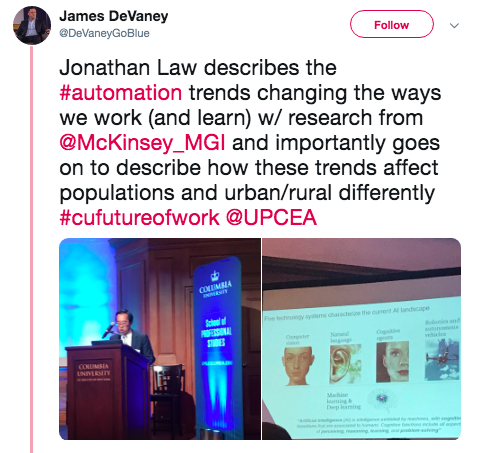 |
The evening concluded with a networking reception.
Inaugural Forum on the Future of Work: Day 2
The second day of the Forum featured panels of business and academic leaders, interspersed with table discussions aimed to advance the ideas presented.
The New York Times’s Neil Irwin moderated, “Talent of the Future: Are We Missing the Mark?,” with Blackrock’s Lance Braunstein, NASA’s Gregory Robinson, and Pfizer’s Dr. Amrit Ray. (Read Dr. Ray’s thoughts here.)
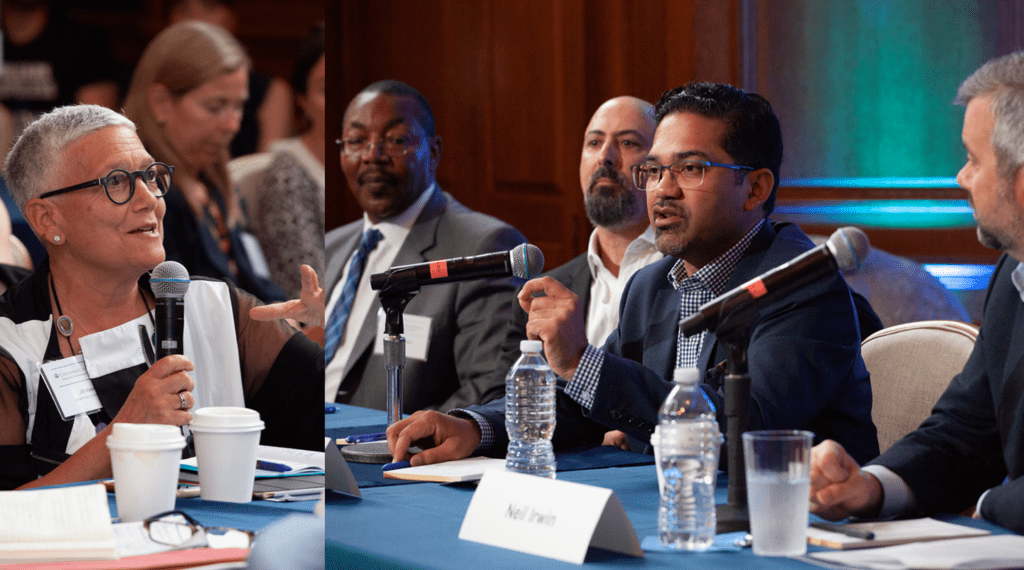
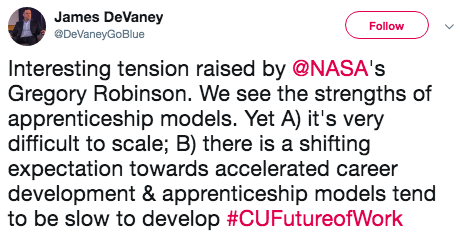 |
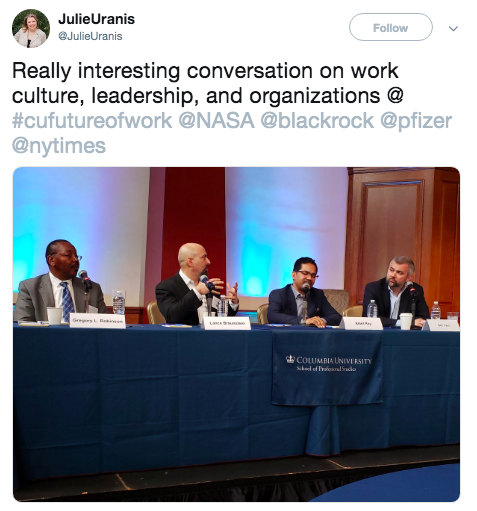 |
The Chronicle of Higher Education’s Goldie Blumenstyk moderated “Higher Education: Still the Solution for a Workforce in Flux?” with Georgetown’s Dr. Kelly Otter, Harvard’s Dr. Chris Dede, and the U.S. Military Academy at West Point’s Dr. Chris Mayer. The challenge for traditional universities is to evolve how they view continuing education, the panel agreed. There should be a stronger emphasis on skill-based learning, and institutions must partner with the private sector to examine existing curricula and how to design the best pipelines for students.
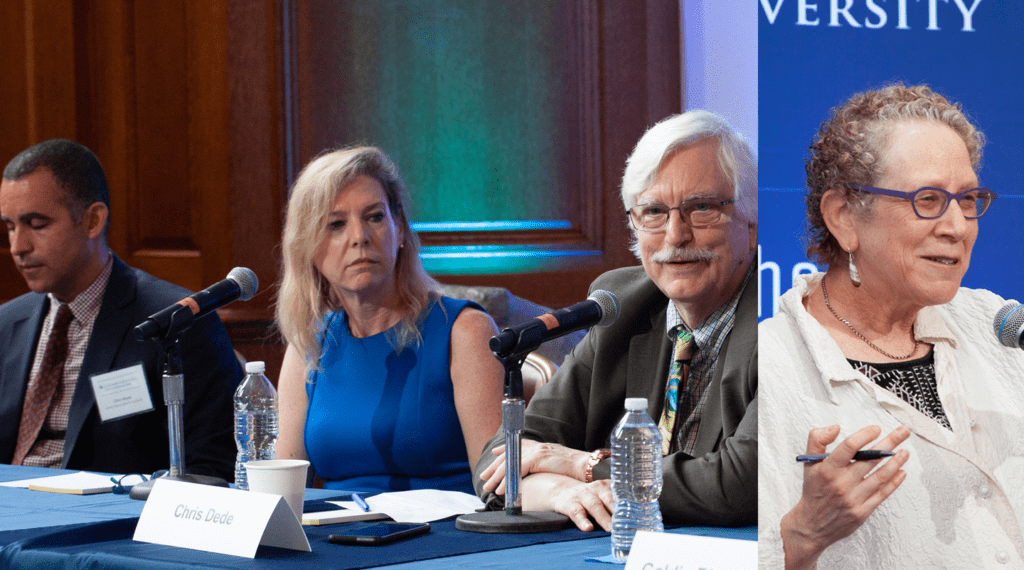
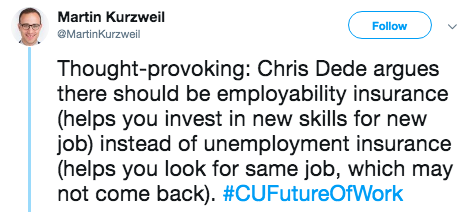 |
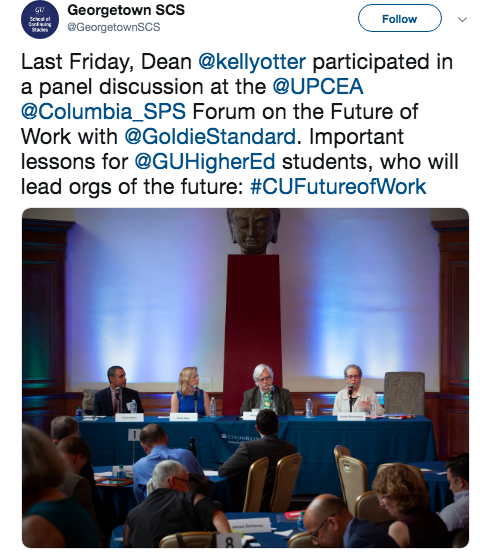 |
The tables were assigned discussion leaders, who encouraged working sessions following the higher education panel. The table discussion leaders included Duke University’s Matthew Rascoff and the University of Michigan’s James DeVaney; Georgia Institute of Technology’s Dr. Nelson Baker and Dr. Yakut Gazi; Marquette University’s Dr. David Schejbal; University of Michigan’s Dr. Earl Lewis and Dr. Alford Young; and The Wharton School’s Dr. Anne Trumbore.
The Forum concluded with “Bridging the Gap Between Learning and Labor,” moderated by Inside Higher Ed’s Paul Fain, and featuring Aspen Institute’s Ross Wiener, Business-Higher Education Forum’s Janet Chen, Carnegie Corporation’s LaVerne Srinivasan, and New America’s Dr. Mary Alice McCarthy.
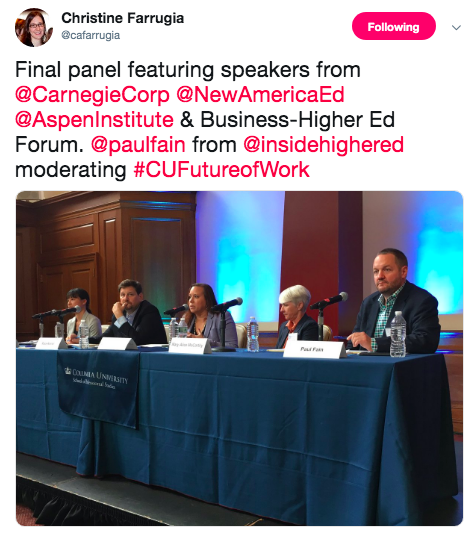 |
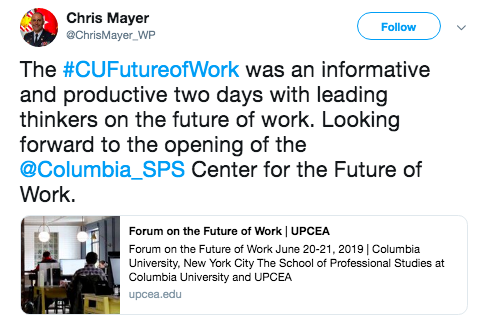 |
Other UPCEA Updates + Blogs
UPCEA Congratulates Members Recognized in the 2019 U.S. News & World Report Ranking of Best Online Bachelor’s Programs
10 of top 11 ranked institutions are members of UPCEA WASHINGTON, D.C. (January 17, 2019) — UPCEA, the association for…
Retirees to Embrace Campus Life (Inside Higher Ed)
….According to the National Center for Education Statistics, just 0.3 percent of students pursuing a degree are aged 65 and over.…


